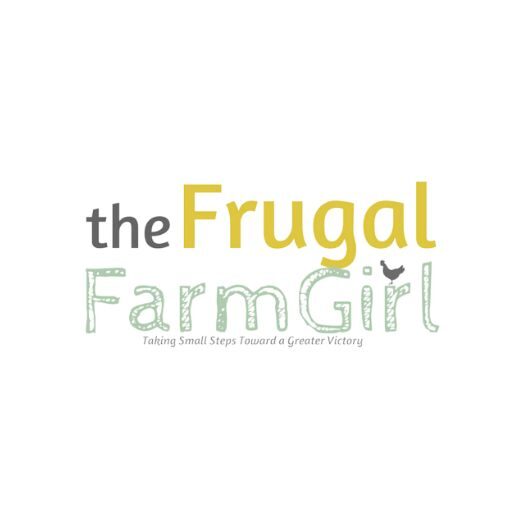To really maximize your garden you need to give it fertilizer. No need to get worried about what to get and how much to spend. You have plenty of fertilizer for the garden in your home right now.
I love using what we have, not only for the animals and with my home decor and everything else, but especially in the vegetable garden.
Think of it like giving your garden a little treat like your animals. Surely you don’t toss out those strawberry tops. Instead, you give them to the rabbits, pigs, chickens, goats, etc. Using what you have is a cost-effective way to use organic fertilizers.
Now you can gather up some of the fertilizers below and get your vegetable gardening off to a fantastic start.

More garden tips to save money:
- The Top Low Maintenance Shade Loving Perennials
- Top Low Maintenance Perennials That Bloom All Summer
- 13 Perennials You Should Not Cut Back in the Fall
Of course, I need to mention my CHEAP vegetable fertilizer find. Because I have a severe addiction to clearance, I found fertilizer bags marked down to 80¢ at Home Depot in Februrary.
Now is the time to get clearance items like this. They are clearing the shelves for the new products. Unfortunately I can’t find the picture of these bags now.
It is also a very easy option for new gardeners to have a little piece of mind when starting their garden area. If you don’t want to use different free fertilizers in your home, the best fertilizers can be purchased at stores like Home Depot, Lowes, and your local garden stores.
The Best Water Soluble Fertilizers:
Miracle-Gro Performance Organics All-Purpose Natural Plant Food.
The Best Natural Fertilizer:
Dr. Earth Organic & Natural Premium Gold All Purpose Plant Food, 4-4-4 Fertilizer
If you are curious about my clearance finds, check out my new biweekly clearance haul posts here.

Remember the things you see in a bag of compost are important to having your own fertizlier in the garden.
The three main components for fertilizer are nitrogen (N), phosphorous (P), and potassium (K).
You can have your garden soil tested before you get started, but I always go by the look and feel of my own. A nice dark color that sort of crumbles as you hold it. Worms are a good sign to see in your vegetable garden.
You can check your local Cooperative Extension offices to see if they do any free soil tests. Amazon sells inexpensive soil test kits. You can always check your local garden center for one too.
Okay, now we can look at things you already have in your home to fertilize your garden.
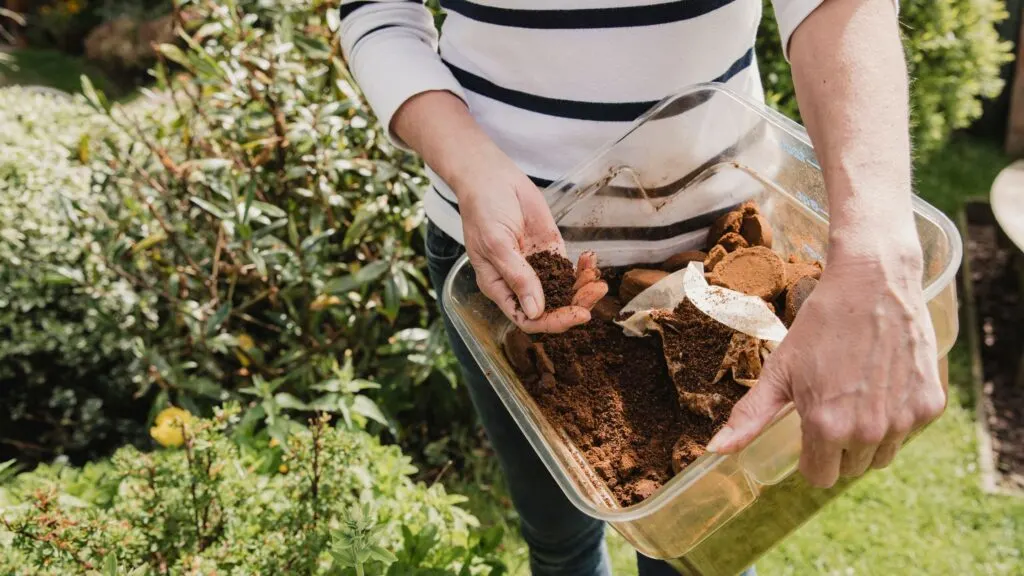
Coffee Grounds
Coffee grounds are rich in nitrogen which helps plants grow quickly. Many gardeners mix used coffee grounds with water and pour them around the base of plants or work into the soil before planting.
You can also add coffee grounds to your compost pile and chicken coop.
If you don’t drink coffee, ask your neighbors, your local buy-nothing FB group, and even a local coffee shop. You know those coffee shops are just dumping them in the trash anyways.
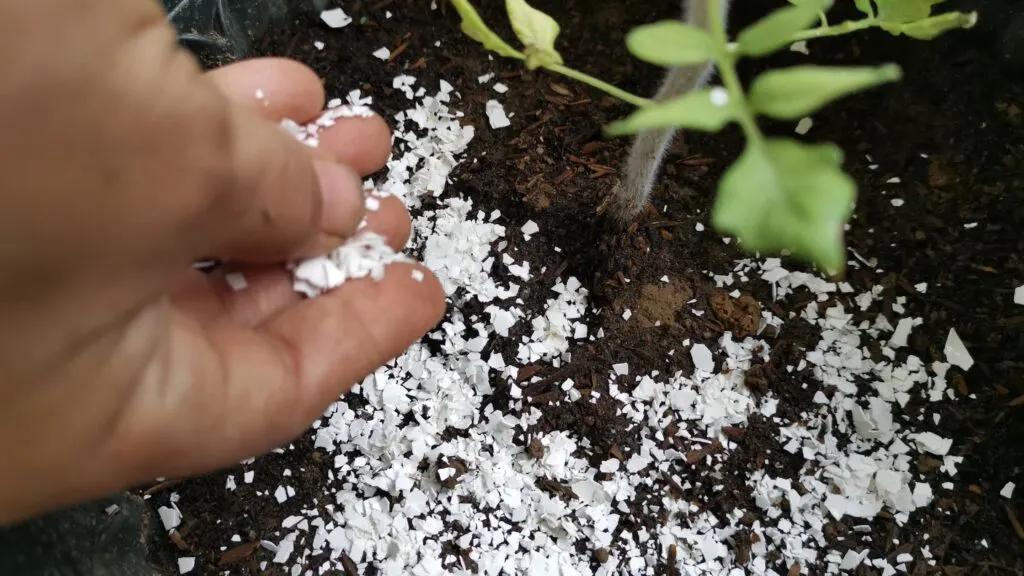
Eggshells
Eggshells are a good source of calcium which helps prevent blossom end rot in tomatoes and peppers. Add eggshells to your compost pile or crush them and sprinkle them around the base of plants that need extra calcium, such as tomato plants, peppers, and eggplants.
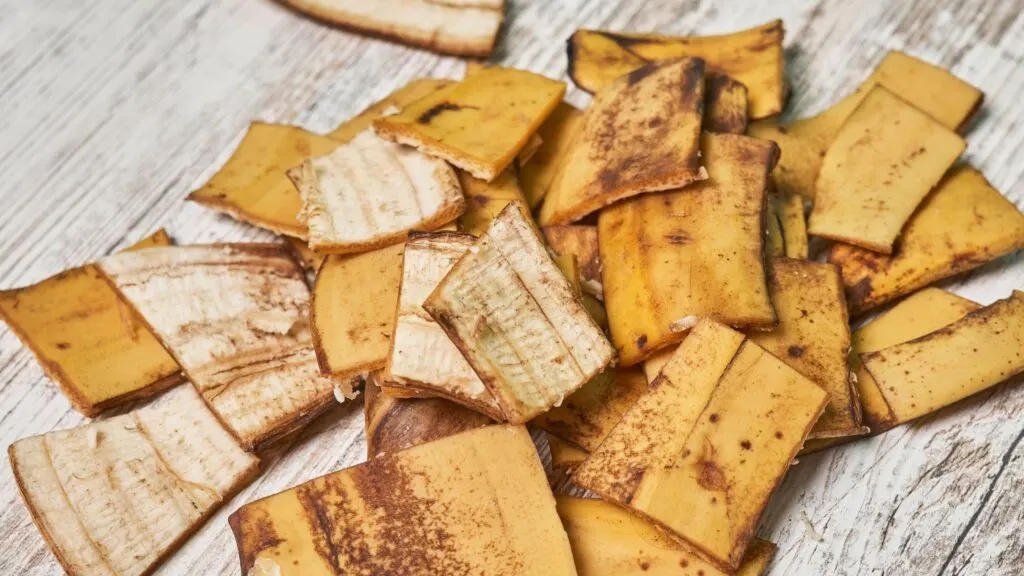
Banana Peels
Banana peels are rich in potassium which helps plants develop strong roots and resist disease. Add banana peels to your compost pile or bury them near the base of plants that need extra potassium such as roses, tomatoes, and potatoes.
I like to keep banana peels in the freezer for baked goods and the garden, so if it’s winter months you can save them for spring/summer months.
Or make homemade banana peel powder! Cut and dehydrate the peels, then grind them into fine dust to sprinkle around the plants. Your beloved greens will appreciate an instant nutrient boost!
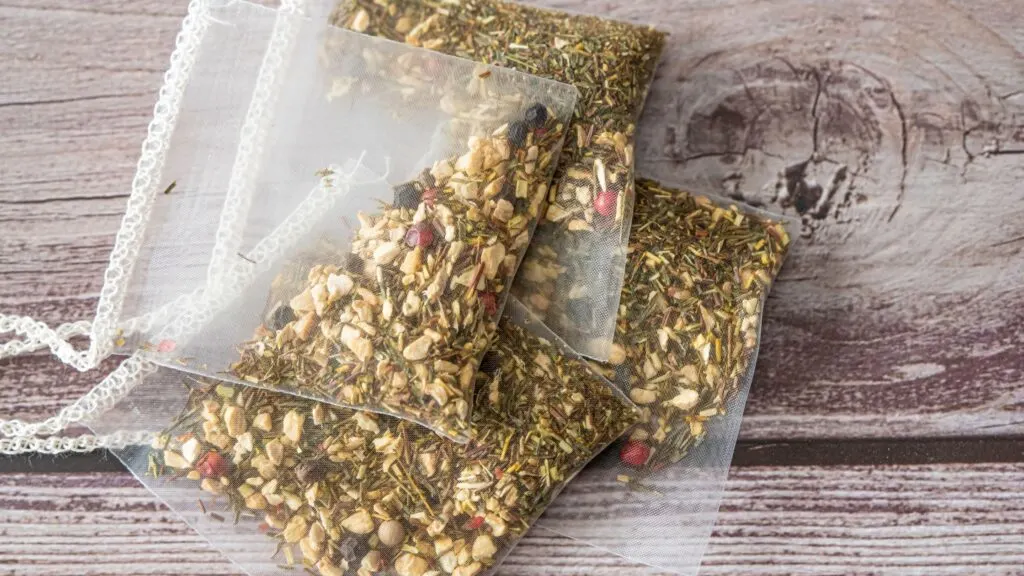
Tea Leaves
Tea leaves are rich in nitrogenand make excellentt mulch for acid-loving plants such as azaleas and rhododendrons. Add used tea leaves to your compost pile or spread them around the base of acid-loving plants. This also helps deter mice from these plants too!
Most of the tea bags are biodegradable so you can use the whole bag or rip the bag open and sprinkle around your plants.
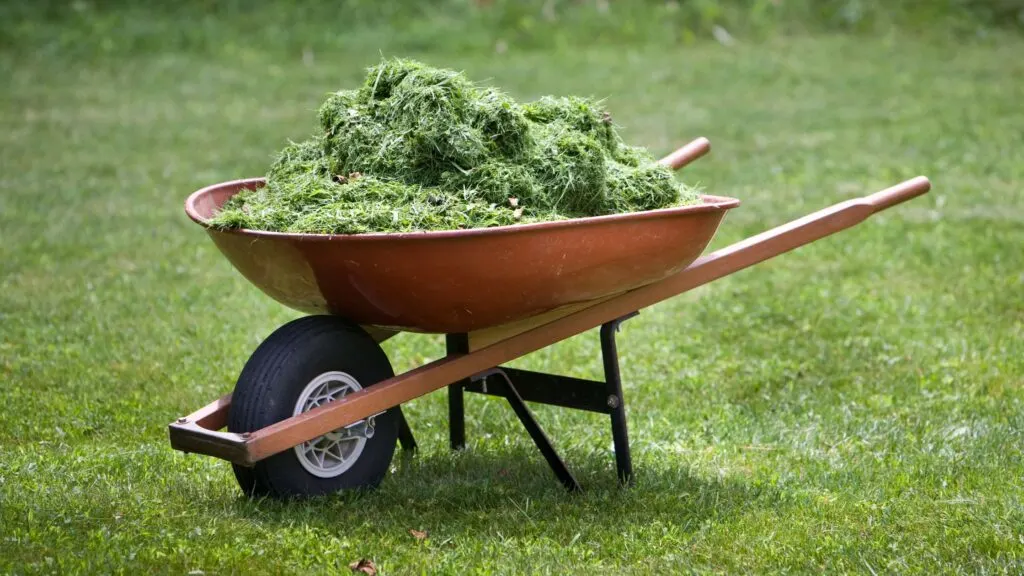
Grass Clippings
Grass clippings are rich innitrogene, so they make a great mulch for all sorts of plants including vegetables, fruits, flowers, and shrubs. Too much of a good thing can be bad!
Little grass clippings are great, but layering on more than 1 or 2 inches at once could suffocate the soil. For your garden, stick to drier cuttings, and don’t overdo it with too many layers of clipping love.
Add grass clippings to your compost pile or spread them around the base of plants that need extra nitrogen such as corn, tomatoes, cucumbers, squash, lettuce, cabbage, broccoli, and Brussels sprouts.

Leaves
Leaves are a great source of carbon which helps improve soil structure while providing nutrients for microorganisms that help break down organic matter into plant food.
Add leaves to your compost pile or shred them and use them as mulch around the base of plants that need extra carbon such as trees, shrubs, and perennials.
I added a bunch of dried leaves to our pig pen as well.

Hair
Who knew your hair could be put to such good use? It’s true – a bit of extra magnesium in the soil is excellent for plants, and one way you can get it naturally without harsh chemicals or fertilizers is by putting some strands from your brush into compost.
Even dog, cat, or horse hair works well! Not only does this provide an added nutrient boost but also helps break up thick clumps so roots have space to spread out.
Add hair trimmings to your compost pile or bury them around the base of plants that need extra nitrogen such as corn, tomatoes, cucumbers, squash, lettuce, cabbage, broccoli, Brussels sprouts, roses potatoes, bananas azaleas, rhododendrons trees, shrubs perennials
These are just a few free fertilizers you can use to ensure your vegetable garden is healthy and thriving! Keep these tips in mind, and you’ll be able to enjoy a lush, fruitful garden without spending a fortune. Happy gardening!
More Gardening Tips:
